Virginia’s House of Burgesses, British America’s First Elected Legislature
The Colony of Virginia was established at Jamestown by the Virginia Company in 1607 as a for-profit venture by its investors. To bring order to the province, Governor George Yeardley created a one-house or unicameral General Assembly on July 30, 1619.
This body of men was comprised of an appointed Governor and six Councilors, as well as 22 men called burgesses (a burgess was a freeman of a borough in England). Most importantly, the burgesses were elected by the eligible voters (free white males) in the colony, thus making this General Assembly the first elected representative legislature in British America.
In 1642, Governor William Berkley split the legislature into two houses initiating a bicameral assembly, with the elected representatives in the newly created House of Burgesses and the appointed Councilors of State meeting separately.
It was here, the leading men of Virginia met and debated the great issues of the day. Until the 1760s, this legislative body largely determined how the colony would be governed, including how its citizens would be taxed.
This began to change in 1765 when Parliament passed the Stamp Act which imposed a tax on paper products such as newspapers, pamphlets, and legal documents. Importantly, it represented the first time Parliament placed a direct tax on the colonies in North America.
This revenue grab did not go over well with the colonists who were used to controlling their own internal affairs. The debates and the documents that flowed from the House of Burgesses after that act spearheaded our nation’s drive for independence from England.
James Barton Longacre. “Patrick Henry.” National Portrait Gallery.
On May 29, 1765, Patrick Henry introduced a series of resolutions known as the Virginia Resolves. These declarations essentially denied Parliament’s right to tax the colonies since the citizens in America did not have representation in England.
By late June, many newspapers throughout the colonies had printed these resolutions which inflamed the passions of people. The “no taxation without representation” sentiments led to the Stamp Act Congress of 1765, marking the first time the colonies joined forces.
The years passed and the relationship with England continued to deteriorate as the Mother Country introduced more burdensome legislation. In 1774, after Parliament passed the Boston Port Act which closed the port of Boston, the House of Burgesses again voiced their opposition in a series of resolves. The result was that Governor Lord Dunmore dissolved the assembly.
However, the Burgesses would not be denied their right to assemble and immediately convened in a public house called the Raleigh Tavern. Here, they called for a series of five Virginia Conventions to meet in defiance of the governor.
It was at the Second Virginia Convention on March 23, 1775, that Patrick Henry gave his most famous speech by concluding, “Is life so dear, or peace so sweet, as to be purchased at the price of chains and slavery? Forbid it, God Almighty! I know not what course others may take, but as for me, give me liberty or give me death.”
In addition to Patrick Henry (Burgess from 1765-1776), the men who passed through the House of Burgesses was a group that had an outsized influence in the founding of our great nation. Its alumni list is a “Who’s Who” of Founding Fathers:
George Mason (Burgess from 1758-1760) who wrote the Fairfax Resolves in 1774 which denied Parliament’s authority over the colonies, and in 1776 formulated Virginia’s Declaration of Rights, a precursor to our Declaration of Independence and Bill of Rights.
Thomas Jefferson (Burgess from 1769-1774), our third President, whose 1774 paper A Summary View of the Rights of British America clearly expressed our grievances against King George, and the author of our landmark Declaration of Independence in 1776.
George Washington (Burgess from 1758 to 1775) who commanded our Continental Army in the American Revolution, was our first President, and became the Father of our Country.
With the advent of the new Virginia Constitution in 1776, the House of Burgesses was finally dissolved. In its place, the new state government created an elected Senate and House of Delegates, which continues to govern the Old Dominion today. In 1780, Virginia moved its capital to Richmond, ending Williamsburg’s long run as the center of politics in America.
WHY IT MATTERS
So why should the history of the House of Burgesses matter to us today? In its day, many of the men who assembled there later assembled on the national stage to lead our country. Throughout the crisis with England, it was an eloquent and vocal proponent for American liberty and many of the ideas found in our Declaration of Independence and Constitution were first debated and refined in their meetings.
SUGGESTED READING
Lion of Liberty: Patrick Henry and the Call to a New Nation, written by Harlow Unger is an excellent account of this often-overlooked Founding Father. The book is easy to read, told like a story, and describes Henry’s life in detail.
PLACES TO VISIT
Arguably the greatest living history museum in America is Colonial Williamsburg in Williamsburg, Virginia. It includes hundreds of restored or reconstructed buildings from the 1700’s, and tradesmen making their goods just as their predecessors did centuries ago.
Until next time, may your motto be “Ducit Amor Patriae”, Love of country leads me.

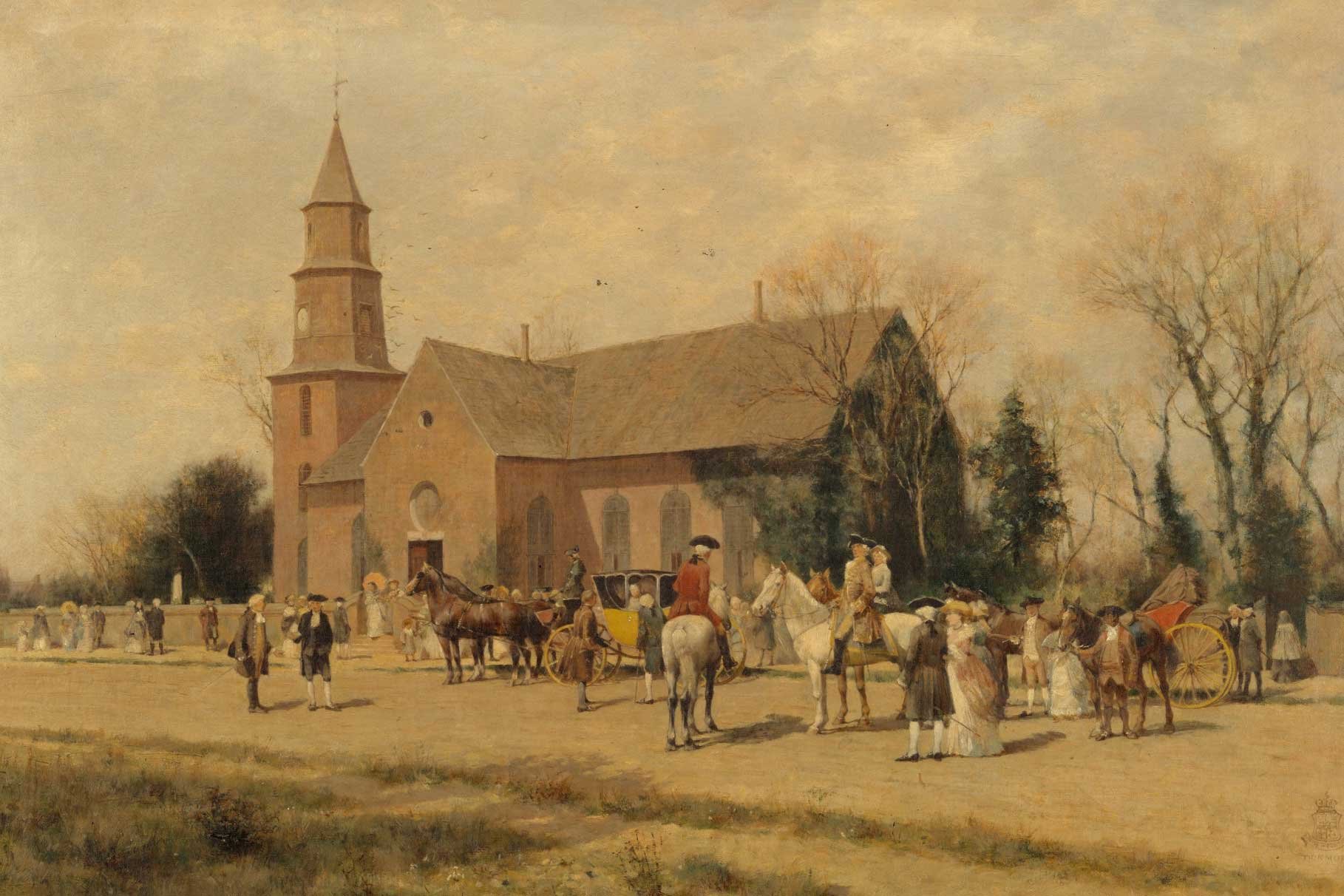

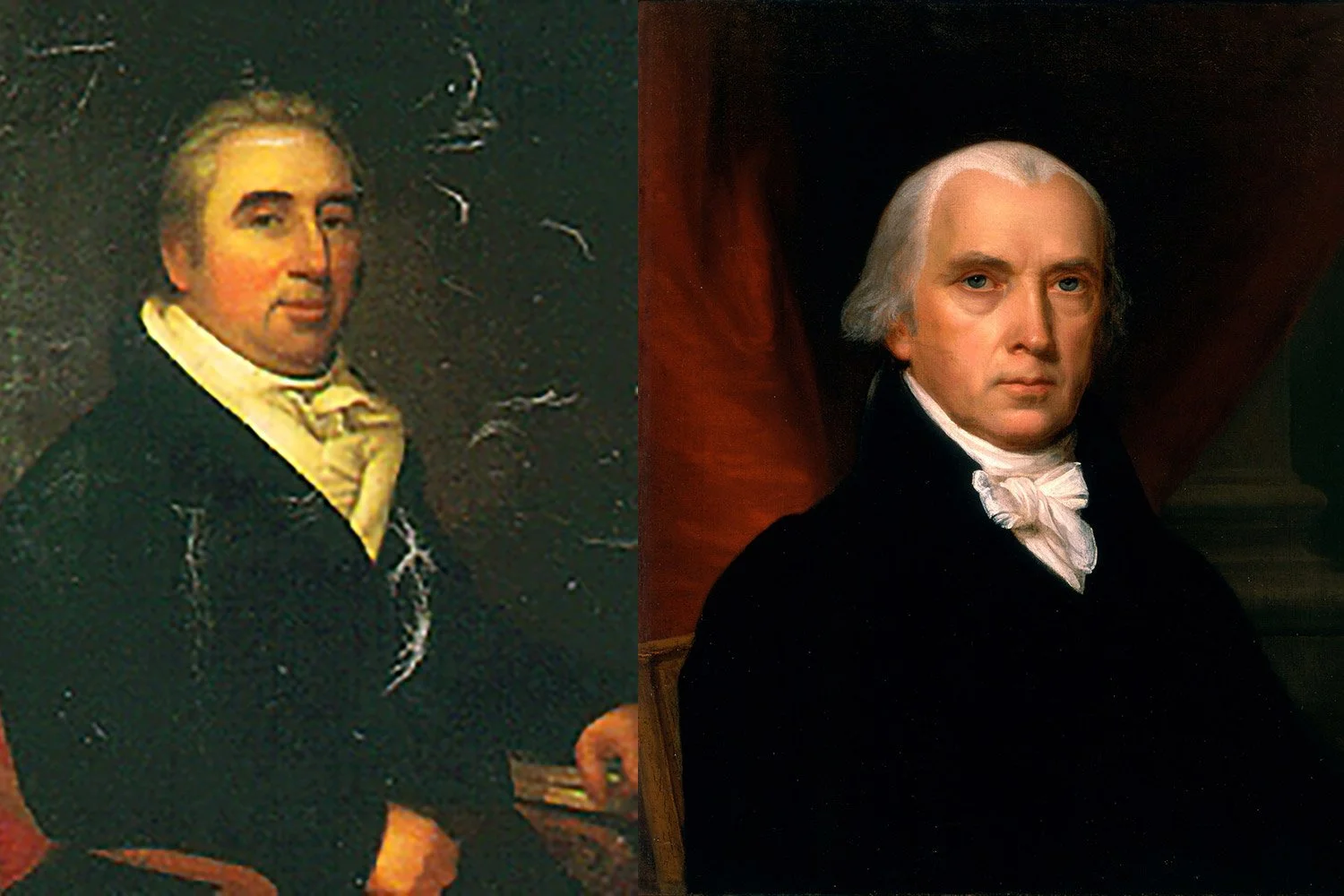
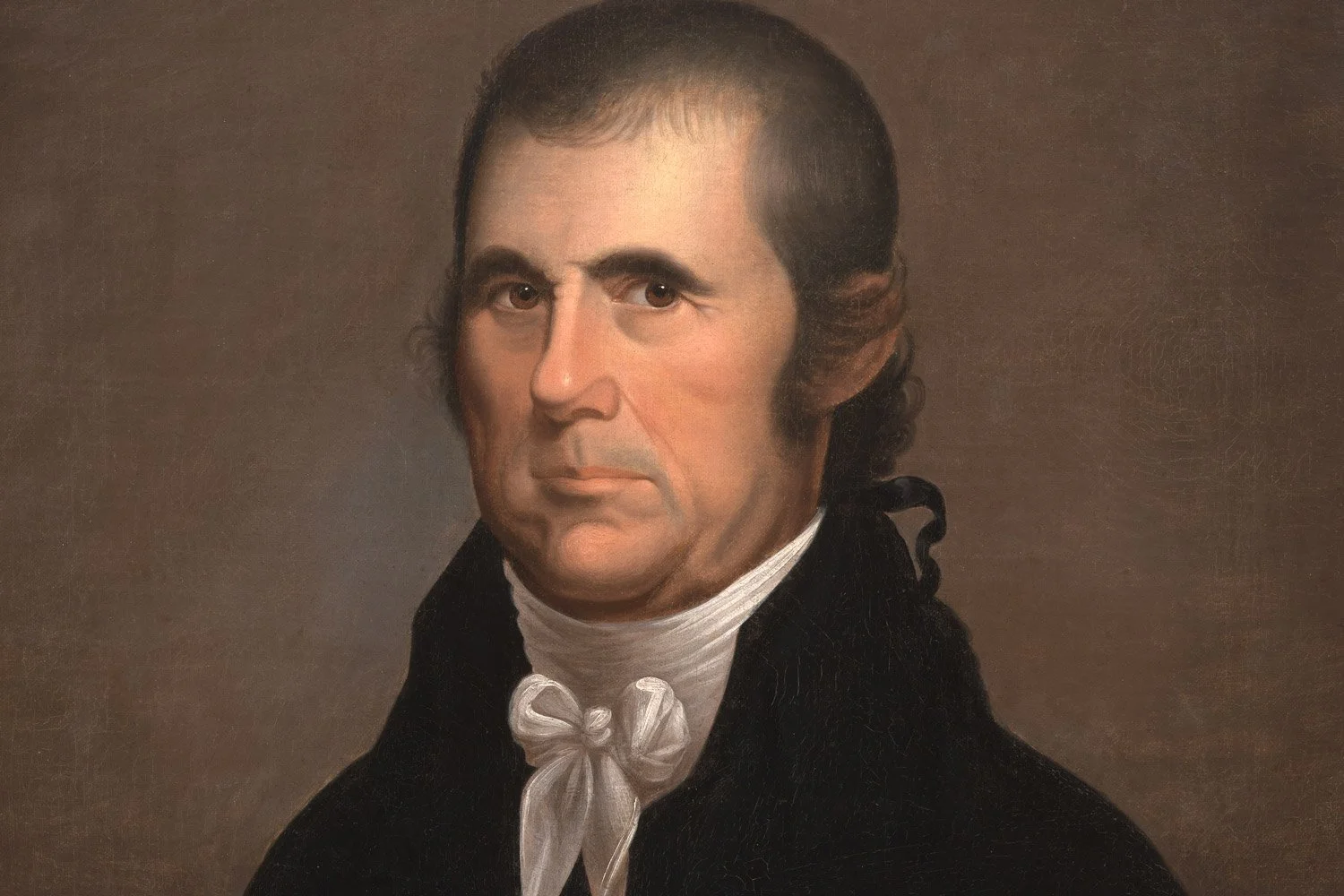
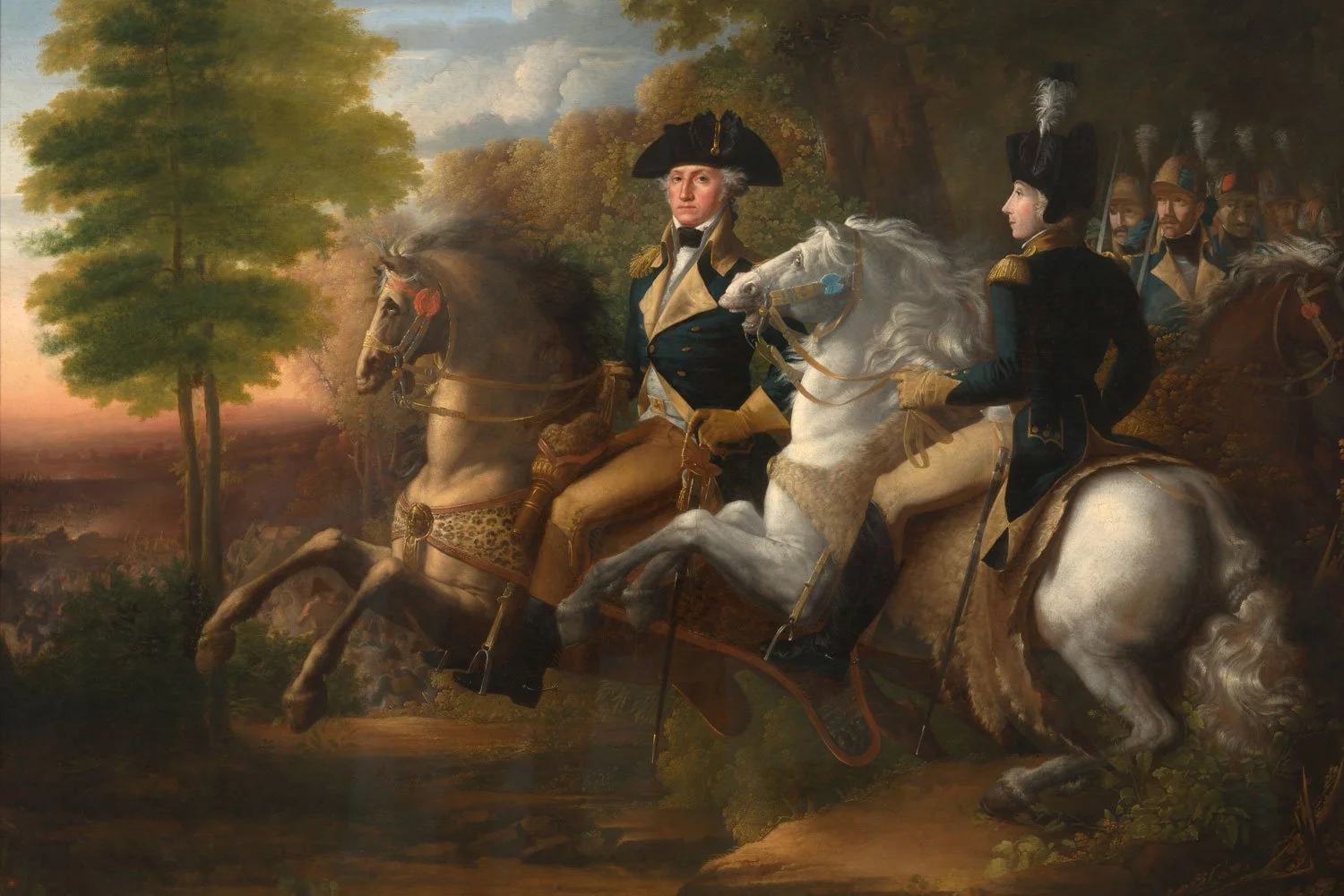
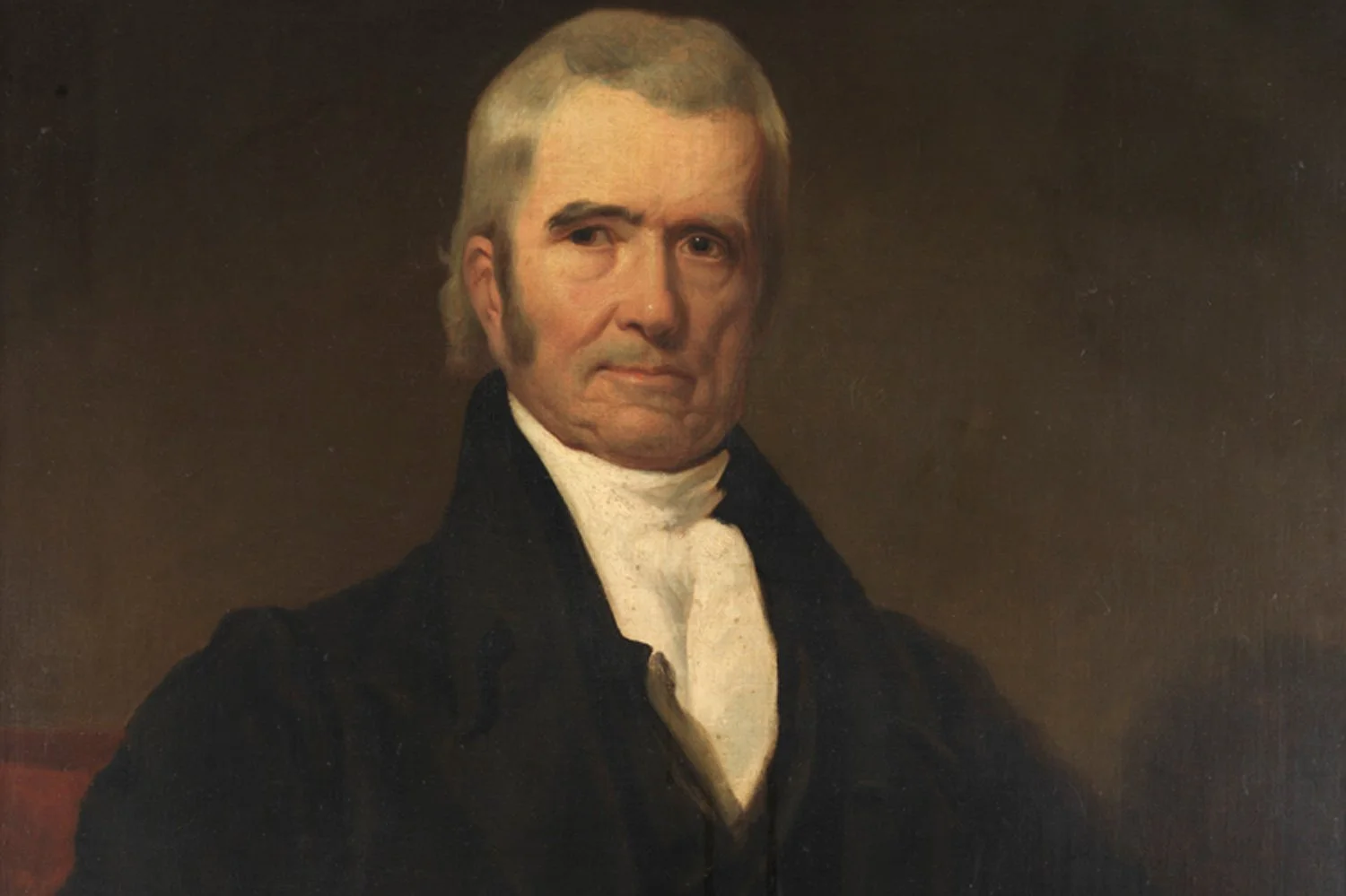


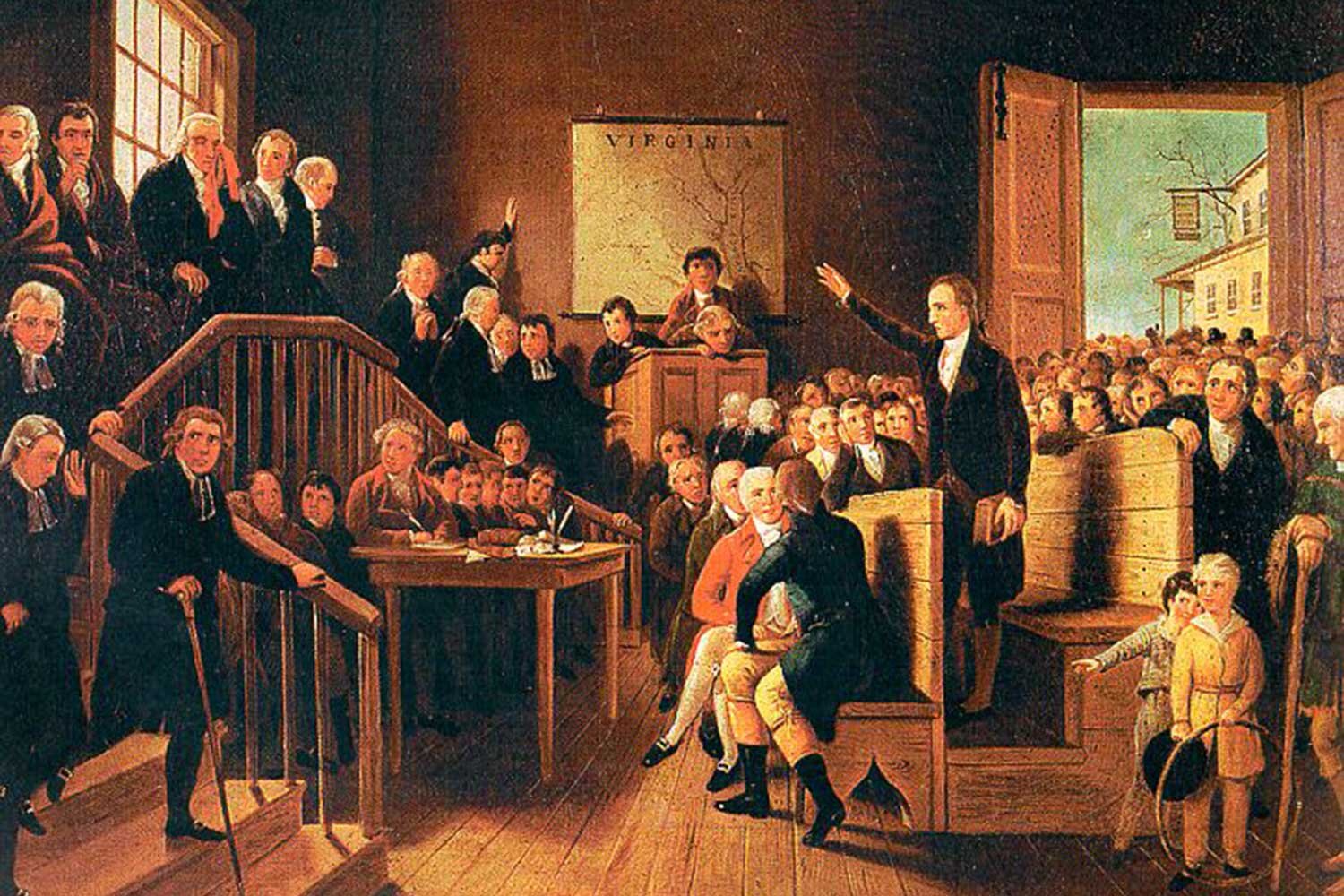


There has been only one instance in our nation’s history of a United States Supreme Court Justice being impeached, and that occurred in 1804 during a significant political tussle over the independence and power of the judiciary. The justice in question was Samuel Chase and his alleged crimes seem trivial in retrospect, but Chase was simply a pawn in an ongoing battle of wills between two American icons, President Thomas Jefferson and Chief Justice John Marshall that took place in the early 1800s. And the decision reached in his case would have a profound impact on the future of the country.